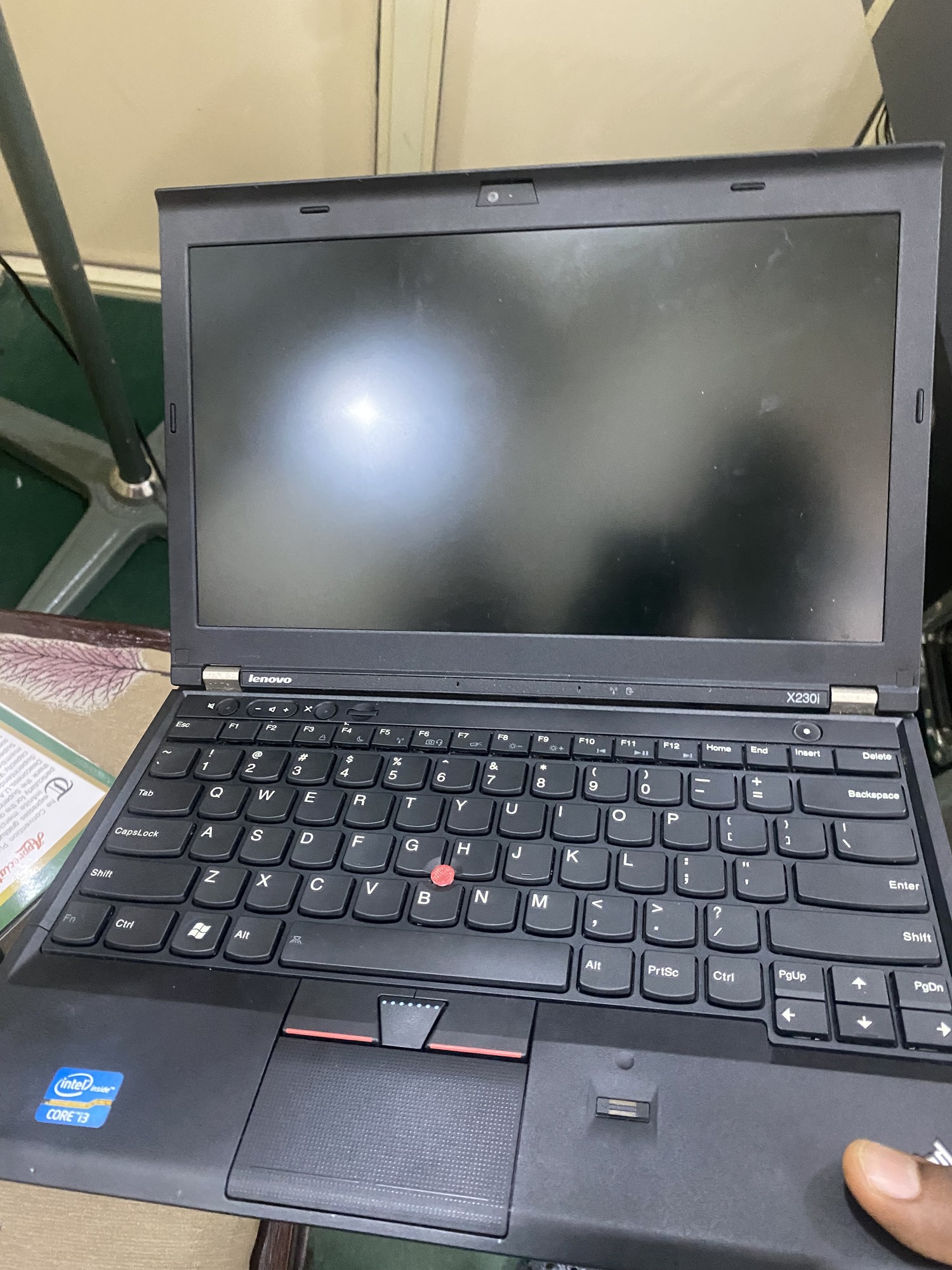Here’s the PC:

Hannah Montana Linux, obviously
That, or TempleOS
I swear by mulinux with Emacs as textual WM.
Depends on what you’re looking for. I’m guessing you’re more of neophyte to Linux or you probably wouldn’t be asking.
I always recommend Linux Mint to newbies. It’s very user friendly (more so than windows 11 imo), and it’s a spin off of Ubuntu, so it’s got great support behind it.
Ubuntu itself is a spin off of a distro called Debian, so if you ever have problems with Linux Mint and you can’t find an answer on the very helpful Linux Mint forums, you could always search for your answer on Ubuntu’s forums, or Debian’s.
Arch based distros are better for newer hardware because it’s bleeding edge, but that laptop looks so old that you probably wouldn’t need anything like that.
Second linux mint for starters.
When do you guys outgrow mint?
I like fedora’s defaults (which are very different to ubuntu/mints) and I’d still recommend it to a seasoned linux user. (I use opensuse aeon btw, but I wouldn’t recommend it to starters)
Why is mint only for starters? When do you reach the point where you outgrow it?
It’s not just for starters. Lots of veterans use it too.
Nobody wrote just or only for starters. It is just darn easy for beginners and somewhat familiar for people switching.
You basically never outgrow it, and naturally you can always head over to experiment with other distros (e.g. CachyOS).
You are confused. Try again.
Try again and read the post you were answering too in the first place.
By luck you’ll find the only, which wasn’t mentioned by the originating post (original_charles) or my plus one post, but was introduced by the illusionist.
Okay let me try again:
Why is mint only for starters?
It’s not just for starters.
Nobody wrote just or only for starters
First thing you need to do is buy a bunch of thigh-high socks, then try those on and feel which one feels right for you. Then post your legs with those on and we will tell you in the comments which distro to run.
Spoiler: It’s Arch btw
I reccomend fedora, great compromise between stability and modern features
Unrelated but relevant advice: Is this a refurbished laptop?
- Make sure to run Lenovo Diagnostics software; you can get it from official Lenovo website and check for any hardware issues during the stress testing.
- Check if BIOS password is removed.
- Test for memory RAM errors: disable secure boot in BIOS, then run Memtest86 test via a bootable USB to check for any memory errors.
I run Debian. It’s perfect
I got a very recent Thinkpad and it apparently has official support for Ubuntu and Fedora. I went with Fedora KDE.
Debian with XFCE. It’s very stable with very little bloat compared to Ubuntu.
KDE might not run horribly, but XFCE was always snappy for me when I ran it on a similarly-aged, sinmilar performance Fujitsu Lifebook.
Please stop asking, everyone. The answer is always Mint.
Why not asking? How do you know which distro best fit the computer if you don’t know it’s screen size and colour? And do ask again when it becomes colder in winter!
I’ve been using Debian. I’ve never understood the attraction of Ubuntu, which is basically a corporate relabel of Debian. If I were really cool, I’d presumably go for Nix or Guix. Maybe someday. I switched from Fedora to Debian some years ago over some drama whose details I’ve forgotten, and have been happy with the move. Arch tries to be more up to date with everything and I guess that’s good for some users, but I like stuff that is stable, with an upgrade every few years.
Debian 13 with KDE Plasma has been super nice. Really nice looking straight out the box, zero setup required.
Feel like Ubuntu and Mint have less and less reason to exist with how great Debian is these days.
If you’re using this laptop to do work, then Mint or Zorin can’t be beat. They have user-friendly interfaces, they have stable packages meaning updates are unlikely to break your OS, and you can still install new software through Flatpak and Snap.
Once installed, install Librewolf for web browsing, VLC for video playback, OnlyOffice for MS Office files, and any other software you need from the built-in software store. If you choose Mint then you need to turn on unverified Flatpaks in the software store for everything to appear.
Also, with the original 1 x 4 GB of RAM and mechanical hard drive, this laptop will be slow with a modern OS, so I recommend upgrading it to 8 GB RAM (2 x 4 GB is recommended for dual channel speed) and an SSD beforehand.
With a machine like that, you’re firmly in the mainstream of linux. Almost any distro will run well on it, so selection is a matter of taste.
Debian is a solid, conservative option, though they have a reputation of lagging behind other distros in terms of software versions. I do like arch, their wiki is first rate. It has the reputation of being finicky but I’ve always found it pretty straightforward. Great for the extensive docs and not trying to insulate you from the system.
I personally would avoid ubuntu these days, they seem to be leaning into the Ubuntu Way for things like installing software. A bit lock-in ish for me.
FWIW I’m running nixos on my thinkpads, works great. Nixos is not to be undertaken lightly, there’s a lot to learn and docs are meh. Stability is second to none, and the declarative configuration management makes it great for easing into devops.
Mint rather than Ubuntu surely, if you want a debian base. If you prefer something Fedora-based, I hear good things about Bazzite
The nice thing about Mint is that there’s no hardware requirements for thigh-highs. You can just wear regular socks.
TempleOS is the only correct answer.
What about Hanna Montana Linux?
For a PC from around 2010-2018: Mint Cinnamon, Ubuntu 24.04, Lubuntu 24.04, MX Linux, in that order. Not Kubuntu, apparently it’s the lost sheep of the family. Until you’ve used Linux for a few years, always aim for LTS (long term support) or similar terms. Never use an OS billed as a “beta” or “release candidate”. “Rolling release” is suspect. It’s all fun and games until your OS doesn’t boot or you lose your data. Stability matters (and back up your data). Once you learn how Linux works, and if you become an enthusiast, you can do what you want. I highly, highly doubt you’ll find Arch as painless as what I recommend.
https://lemmy.frozeninferno.xyz/post/58612395
400+ installs in the past four years - discarded/donated business laptops that get fixed, cleaned, upgraded with cheapest SSDs and donated to predominantly tech illiterate users.
99% is ubuntu lts + ansible playbook that removes snap, disables A TON of update naggings, installs flatpak, coupla apps and systemd timer to autoupdate all flatpaks. this is the only thing that has low support requests, everything else we tried (mint, debian, fedora) has a disproportionately higher support request frequency (reinstalls, wifi, fix this, remove that, etc).
I’d say Ubuntu as #1 but it’s not known for maximum performance. Debian installer is a total mess and Linux fans don’t realize how foreign it is to a newbie. It feels like the Debian installer was last updated in 2004. I have a soft spot for Lubuntu and its classic Windows 2000 look. Runs fast too if that matters to you.
I mostly agree with the idea of using stable distros.
However, I will add that if you hate the default Debian installer and are willing to dig a bit through the website, they do have live USBs for each DE with a Calamares installer that I love. I really wish they would promote those more.
Honestly, they need to redo the whole Debian site.
Also, I find it funny you include 2018 in your range; I think that most things from 2018 could probably run almost any full modern distro competently, and that the better quality devices from 2015-2017 also wouldn’t struggle too much.
Debian’s website is such a pain. Why are the live ISOs buried?









